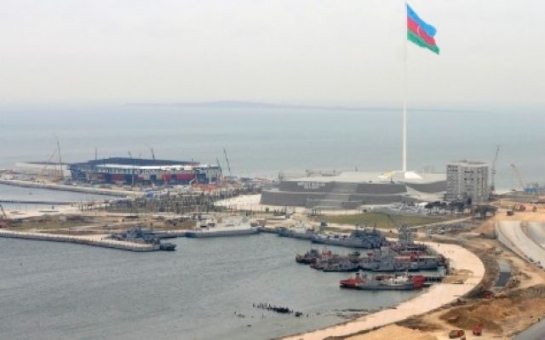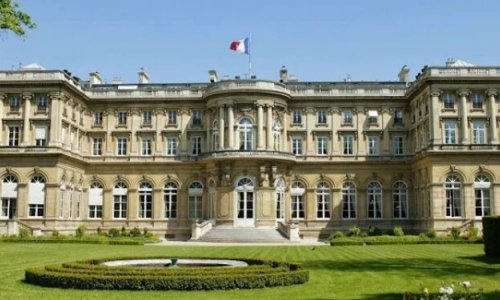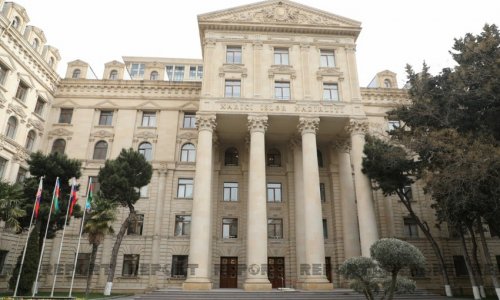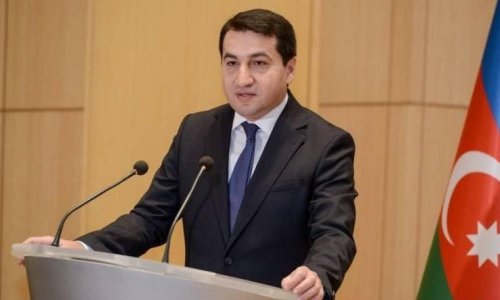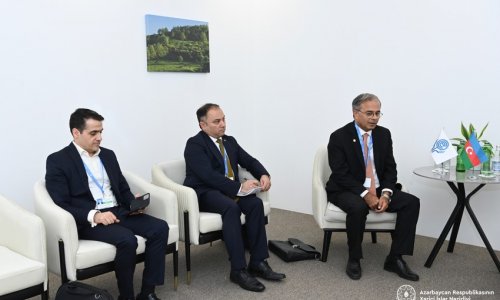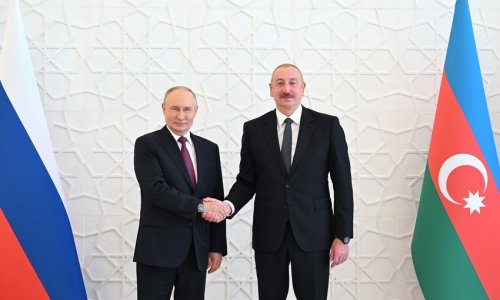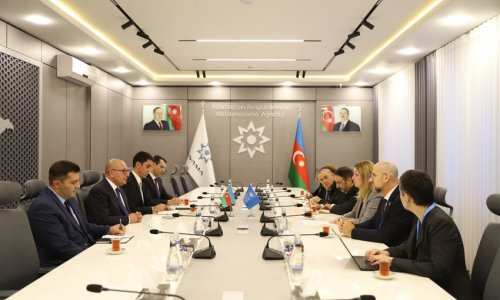By Reshad Karimov
(Haaretz) - In his op-ed “Israel must not sell arms to the Azeris” (Haaretz, Oct. 26), Yair Auron attempts to mislead the public and forms an opinion about the Armenian-Azerbaijani Nagorno-Karabakh conflict that is far from reality, while clearly undermining the strategic cooperation between Azerbaijan and Israel.
Israel has been among Azerbaijan’s top five trade partners in recent years. Baku is Israel’s top oil supplier, providing about 40 percent of its annual consumption, while Israel is the sixth-highest importer of Azerbaijani oil.
Azerbaijan has been home to a Jewish community for more than 2,000 years, based in Baku and the northern city of Guba. Today, this community numbers 20,000-25,000, similar to the Jewish populations in Iran and Turkey.
Azerbaijani Jews enjoy safety and freedom of worship and culture; President Ilham Aliyev visits their community institutions in Guba annually, and issues regular greetings on Jewish holidays and a solidarity statement on Holocaust Remembrance Day. With this in mind, it is sad to see an article such as Auron’s in a popular news outlet.
First of all, it is of utmost importance that things are called by their names. Nagorno-Karabakh is an internationally recognized part of the Republic of Azerbaijan that is currently under the military occupation of Armenian armed forces, together with seven adjacent regions. What exists in Nagorno-Karabakh and surrounding occupied territories is an unrecognized separatist regime, and should be called as such. It has been established in violation of the territorial integrity of Azerbaijan and forced the eviction of hundreds of thousands of ethnic Azerbaijanis, amounting to ethnic cleansing.
Secondly, the open military phase of the Armenian-Azerbaijani Nagorno-Karabakh conflict saw some of the worst war crimes and crimes against humanity, similar to those perpetrated by Nazis during World War II – but the author failed to mention that the Azerbaijani side became a victim of aggression; that Azerbaijanis, not Armenians, lived through the horrors of war.
Thirdly, despite continuous occupation of one-fifth of its territory and having more than a million refugees and internally displaced persons as a result of the Nagorno-Karabakh conflict, Azerbaijan has importance greater than its size due to its strategic location linking Europe and Asia, its energy wealth, and its historical experience as an early modernizer in the Muslim world.
Located at the crossroads of the major trade and energy routes between East and West, and maintaining the secularity of a state with a Muslim heritage, Azerbaijan is a natural bridge between Europe and Asia, and a gateway to energy and transportation corridors for the entire region. This makes Azerbaijan one of the most strategic states of the Former Soviet Union in terms of both regional and international security.
Between 30-40 percent of the U.S.-led NATO mission’s supplies to Afghanistan go through Azerbaijan or its airspace. Moreover, Azerbaijan offered Kabul help in combating drug trafficking and the insurgency, along with investments in energy and road construction. And as U.S. and European forces prepare to depart Afghanistan, Azerbaijan is already preparing to be a major conduit for the evacuation of men and supplies of all kinds.
Azerbaijan has a genuinely important role and great potential in the region. The international community has shown a keen interest in Azerbaijan in recent years, expressing significant expectations for the regional leader’s future.
With this in mind, Azerbaijan will act on the multifaceted appeals from the international community and build effective cooperation within and beyond the region. And within this context, strategic cooperation and understanding between Azerbaijan and Israel – which exists in numerous sectors, including the defense and security spheres, despite multiple attempts to undermine it – is something real patriots should be proud about, not the other way around.
Bakudaily.Az

